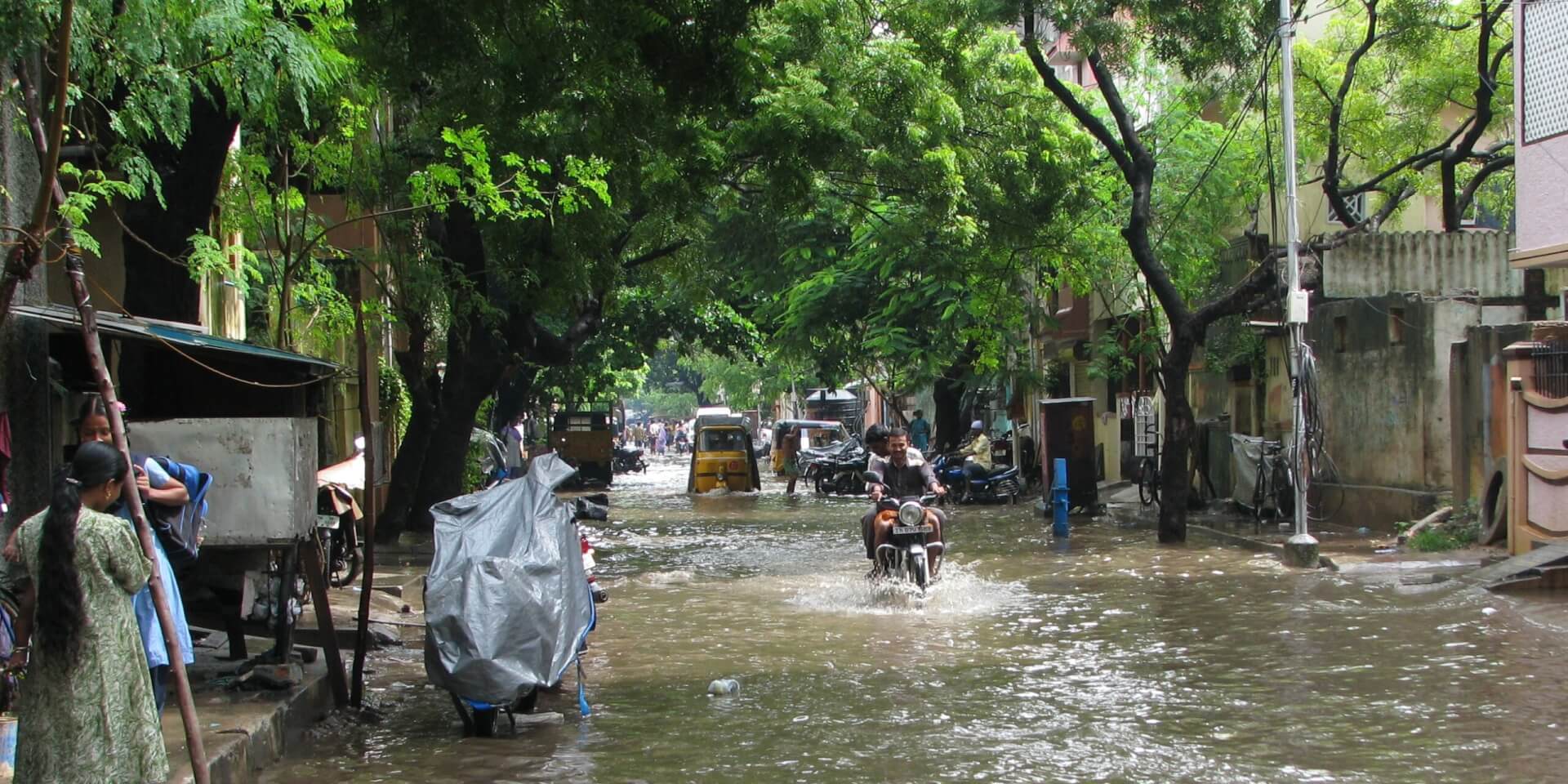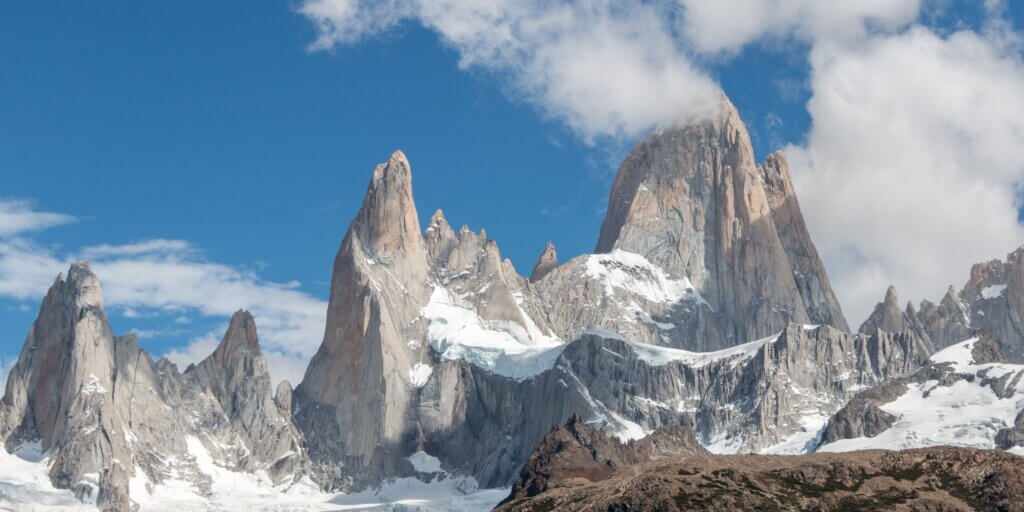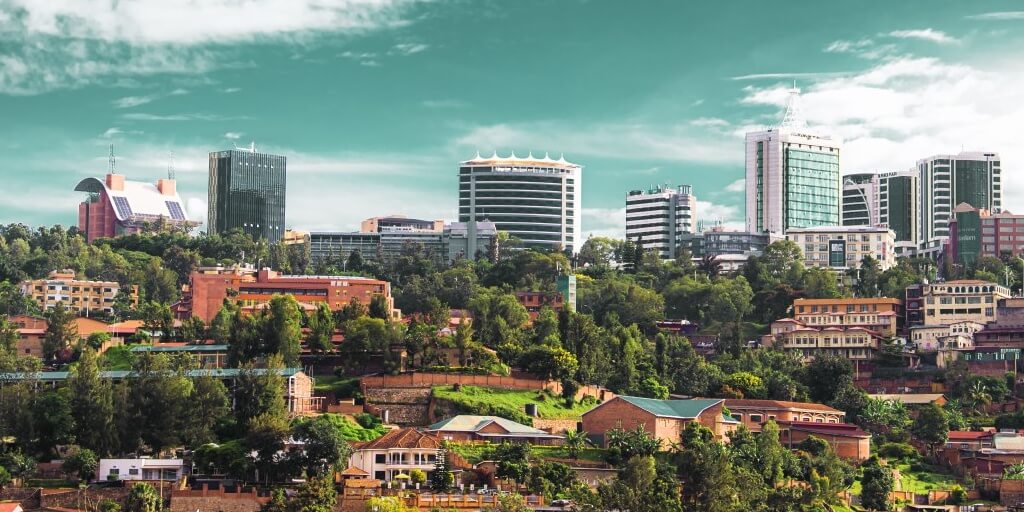
This piece is part of a series of special blogs developed to raise awareness on inclusive climate perspectives, with focus on early-career researchers (ECR) and scientists from the Global South. In this article, Dr. Shipra Jain, a physicist and climatologist from India, bares her heart on climate change and its impacts on society.
Dr. Shipra Jain was born and raised in the land of monsoons: India. For many Indians across the country, monsoon season is associated with joy and prosperity—and Dr. Jain, with her many fond memories of monsoons, is no exception. Unfortunately, these treasured memories are gradually getting corrupted: “Climate change has nearly overwritten my memories. When I think about monsoon now, I immediately think of catastrophes and devastation.”
According to her own words, it is fair to say that Dr. Jain ended up working in climate research by chance. During what she calls “her humble science beginnings”, she felt she lacked the knowledge and confidence to design a career path for herself—a struggle shared by many early—career researchers worldwide. She then followed a very simple logic: “bloom where you are planted”. Dr. Jain strived to embrace what came her way and discover her interests. “It meant working twice as hard, and a slightly long career path, but I think it was rewarding as I found my niche in climate research.”
With her team from the Centre for Climate Research Singapore (CCRS), she studies extreme weather and climate events in Southeast Asia and provides the region with real-time advisory on high-impact meteorological events. In particular, she leads the development of a monitoring system, called the “Indian Ocean Dipole Watch System”, expected to aid early prediction of extreme meteorological events.
In her research, she tries to understand how extreme meteorological events can worsen due to climate change. Dr. Jain recently published a paper aiming to better understand the probability of record-breaking rainfalls and impact climate change on such events. “This information could be useful for decision-makers engaged in strategic planning as it can be used as ballpark estimates” she notes.
In a recent article published in Nature, Dr. Jain speaks of the role of “Butterfly effect” in climate model assessments. She refers to “the inherent property of the atmosphere whereby a tiny change in the present weather conditions can drastically change the future outcome,”—with effects cascading often over decades. This can sometimes lead to discrepencies between models and the actual climate, giving the impression that models are incorrect.
Dr. Jain feels that we do not realize how the way we interact with nature is changing. “One of the risks that I am extremely worried about is heatwaves. There is a hard limit to the human body’s ability to adapt to heatwaves and it needs intervention through external factors, such as air conditioning (which in turn depends on electricity and resources). It will undoubtedly push the vulnerable people, particularly from low-income groups, towards the edge.”
Despite her concerns, she remains hopeful and motivated. Being an early-career researcher who is member of the World Climate Research Programme (WCRP) community brought Dr. Jain with a sense of belongingness and “a valuable opportunity to contribute to society through science”. It has also allowed her to collaborate with numerous international scientific experts, and benefit from their wealth of knowledge and experience—a much needed support when starting a career in science.
Dr. Jain believes the younger generation is critical in addressing the ongoing climate crisis. “Looking ahead 10 to 20 years, it will be our generation at the forefront of climate action. Wouldn’t it be wiser then to become actively engaged in the decision-making process now, so that we are well-informed and prepared for the challenges that lie ahead?”

Shipra Jain
Dr. Shipra Jain is a physicist by training and has extensive experience of working on diverse atmospheric and climate science topics. She works in Singapore at the Centre for Climate Research (CCRS) in the department of Seasonal and Subseasonal Prediction (SSP).
“For me, the most fascinating thing about research is the thrill and excitement it generates – this feeling motivates me to go to work every day. Being in the area of climate research allows me to relatively easily test my ideas or hypotheses using data and computer models, which I believe might not be so easy in much other research fields.”

Global solidarity for climate justice: perspectives from an early-career researcher
In this article, Dr. Leandro Diaz, a climatologist from Argentina, shares his perspective on global solidarity for climate justice.

The human dimension of disaster risk reduction: social sciences and climate adaptation
In this article, Dr. Roché Mahon, a social scientist specialized on climate, highlights how social sciences can effectively improve climate adaptation and ultimately save lives.
The World Climate Research Programme’s (WCRP) Open Science Conference (OSC) is holding its first African edition in Kigali, Rwanda. The once-in-a-decade global conference will address the disproportionate impact of climate change on the Global South, foster mutual understanding, and discuss transformative actions urgently needed for a sustainable future, with a key focus on the “Kigali Declaration” to be presented at COP28.
The WCRP is also conducting a Symposium for Early and Mid-Career Researchers (EMCR). The event aims to boost EMCR presence, showcase EMCR work, foster networking with senior experts, and boost EMCR presence throughput the Open Science Conference sessions.

One world, one climate: a planetary call to action
Ambassador Macharia Kamau, Member of the ISC Global Commission on Science Missions for Sustainability, urges the international community to close the North-South gap in scientific research on climate and strive towards a ‘one world, one climate’ approach for global and sustainable solutions to the climate crisis.
Photo by McKay Savage on Flickr.
Disclaimer
The information, opinions and recommendations presented in our guest blogs are those of the individual contributors, and do not necessarily reflect the values and beliefs of the International Science Council